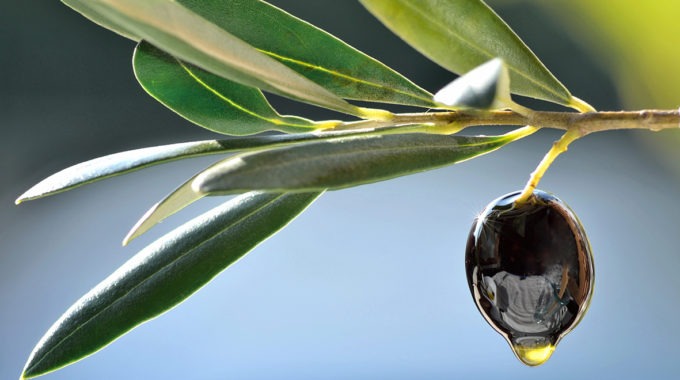Grampians Olive Co: from tree to bottle
Sometimes the old ways are the best ways. For the family-owned Grampians Olive Co in Laharum, Victoria, sticking to more traditional farming methods has led to the creation of some of Australia’s very best certified organic extra virgin olive oil.
Grampians Olive Co is home to the Toscana olive plantation, one of Australia’s oldest olive groves, established in 1943. Heritage trees are organically farmed in the Mediterranean-like climate of the Northern Grampians, and the entire oil production process is done on-site. This ensures the highest possible standards are met at every step, from tree to bottle.
The varieties grown by Grampians Olive Co are no longer commonly used by most producers. While the flavour of the oil is incredible, they produce a much lower yield than the varieties you’ll find in more modern, commercially-driven olive groves. The farm’s olive trees are a mix of 27 traditional varieties, including ones you’ll rarely find in Australia – such as Verdale, Bouquettier, Benito and Manzanillo. There are also some unnamed varieties that are believed to have been developed on the grove by the original founders.
“A lot of those names have been lost as records have been lost,” explains Greg Mathews, who owns and runs Grampians Olive Co with his parents. “They’re sort of like mystery varieties, which makes it more interesting.”
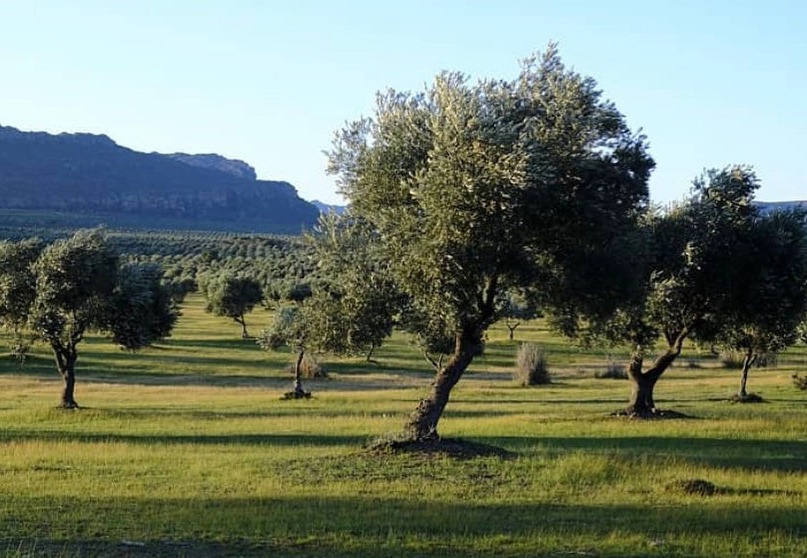
Low yield, high value
The way the grove’s olive trees are planted also means a lower yield of oil. But again, this is all done in the name of flavour and quality.
“Our grove was planted in the traditional low-density layout, where the trees have enough space to spread their roots out,” says Mathews. “The grove is also dryland farmed, which means it’s solely reliant on natural rainfall, without any irrigation.
“The grove would produce a lot more if we did irrigate, but we choose not to. Instead, we get a low yield of really good quality olives that make really good quality oil.”
On average, the Mathews’ grove yields about 10 times less per acre than a typical modern Australian grove. But this is a perfect example of the importance of quality over quantity.
“It’s one of our main points of difference,” Mathews says. “We are producing a smaller amount of oil, but because of the nature of the way it’s grown – organically and without irrigation – the flavour and the quality really shine through.”
The low-density layout of the grove makes it ideal for organic farming. “In modern groves, they’ll be planted almost like hedgerows,” Mathews says. “This restricts air movement and leads to potential for fungal diseases to flourish, which then require a chemical spray or a fungicide. So the wide spacing we’ve got is well-suited to organic production.”
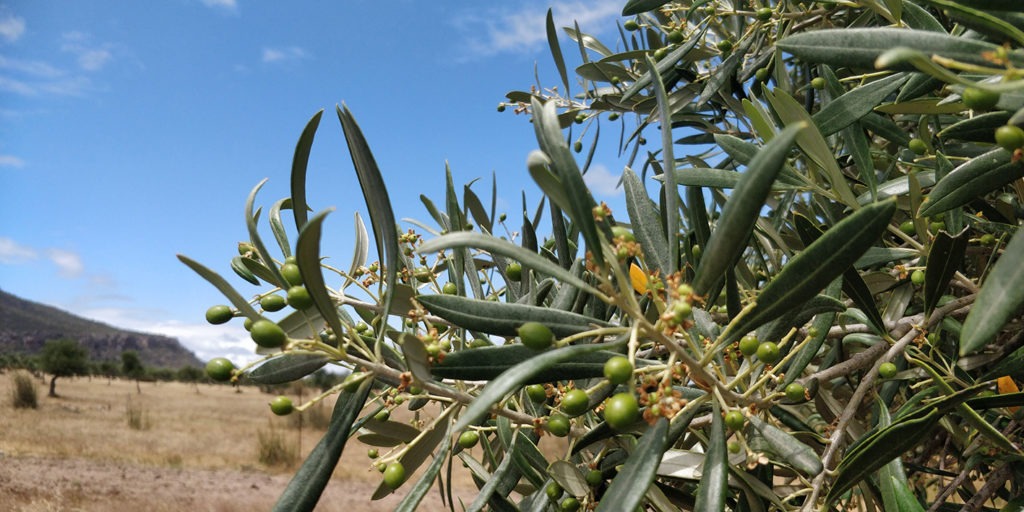
Shake it till you make it
While the Mathews respect many of the more traditional olive farming processes, there are a few things they’ve decided to improve upon, such as how the olives are harvested. For the first 50 years of the grove’s operation, all the olives were hand-harvested. However, the method used to remove the olives from the trees was rather… aggressive.
“They used to bash the trees with a stick,” Mathews says. “It was crude, and really hard work. We did it for the first year we were here, but it’s physically very demanding. It’s not really good for the tree, either. Also, the fruit can bruise as it falls to the ground.
“It worked, and the quality was okay because it was put through the press on the same day. But we could see potential for improvement.”
Grampians Olive Co table olives are now hand-picked and placed directly into brine to preserve the natural flavour and texture. Olives for oil production are harvested by shaking them from the trees where they fall straight into a catcher.
“The olives never touch the ground; they’re never stepped on or anything,” Mathews says. “They then go straight to our on-site press, where we cold press them.”
Once the olives have been pressed, the stones and skins are used to make compost. Wastewater is also returned to the grove. This creates the perfect circular farming system.
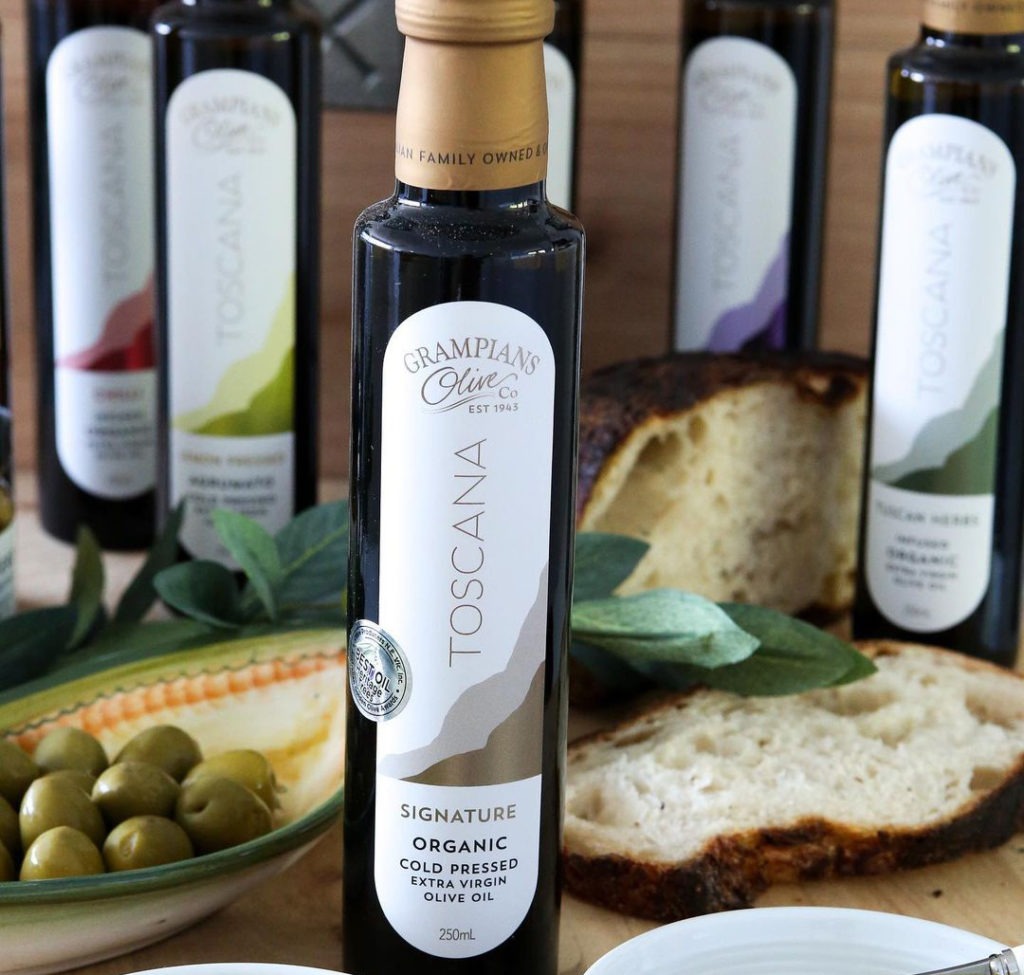
A winning formula
The Mathews produce three main styles of premium organic extra virgin olive oils. Olio Nuovo is a limited release oil, pressed from mostly green olives.
“The green of the olive gives a more robust flavour,” Mathews says. “It’s more herbaceous, with pepper tones to it. It’s always really popular, so it sells out very quickly.”
Signature is made from a mixture of green and turning-purple olives, creating a well-balanced oil that has nice fruitiness along with underlying herbaceous and peppery flavours; while Delicate is a late harvest-style oil that’s pressed from riper purple olives.
“When the olives are riper, more purple, the fruitiness comes through, and you lose that pepperiness,” Mathews explains. “It has a more mellow flavour.”
The grove has won countless awards for its oils. The family enters oil competitions each year, and according to Mathews, they “generally pick up an award or two, which is confirmation that we’re doing a good job”.
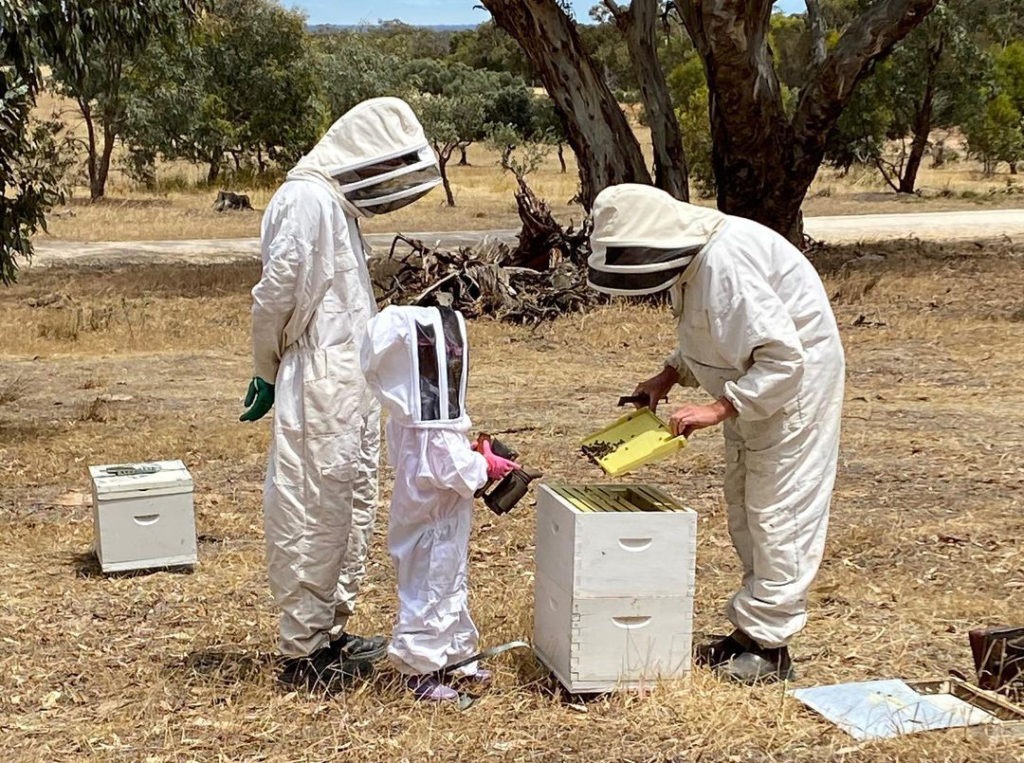
A fruitful family
As well as organic olive oils, Grampians Olive Co also produces a range of infused oils and handmade olive oil soap and body butter. The family has also collaborated with local producers to create a range of artisan vinegars, and helps to support employment for people with a disability, selling dukkah made locally by AXIS Worx-supported employees.
If that wasn’t productive enough for you, the farm also has its own small-batch coffee roaster, and has started producing its own honey, with 30 hives now on the property. Mathews’ father gets to indulge in his lifelong fascination with beekeeping, and the bees get to forage throughout the grove and the surrounding Grampians National Park.
“It’s a good family activity,” Mathews says. “We’ve just got a little hand spinner, so we spin off the honey and jar it up. Initially, we were just selling it at our farm shop, but as our hive numbers have increased, we’ve been able to offer it online as well.”
To find out more, or to check out the full range of Grampians Olive Co products, head to grampiansoliveco.com.au


